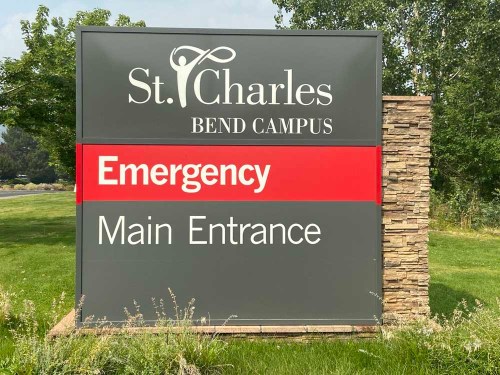Amputees can get their body parts back for spiritual reasons, new Oregon law says
Published 5:30 am Friday, August 25, 2023

- An entrance to St. Charles Bend.
Patients in Oregon who have body parts removed during surgery will now be able to keep them out of respect for cultural and spiritual beliefs under a new law.
The law, supported by health care facilities and cultural and spiritual practitioners, is the result of a partnership between St. Charles Health System and the Confederate Tribes of Warm Springs. Providence Health & Service in Oregon also supported the passage of the measure, according to testimony.
For years, the Central Oregon health system would bring in a cultural practitioner who would bless a tribal member prior to a body part being surgically removed. The health system would cremate those body parts and return the ashes to the patient for a future burial, said Shilo Tippett, a Warm Springs tribal member and St. Charles Health System manager of caregiver inclusion and experience.
Tribal code says that in order for a person to travel to the spirit world, the person’s body must be intact. For some, that can mean every hair must be saved. For others, it means saving organs or limbs that have been removed, Tippett said.
“Over the years we’ve had a number of Native American patients who had expressed help for amputation,” Tippett said. “There’s a gradient on how strict you are with interpretation.”
Previous state law made returning body parts either difficult or impossible.
The Oregon law now follows Washington law, which allows for the return of a removed body part for religious or cultural purposes.
“Today, we at St. Charles are celebrating the passage of this legislation along with our friends and partners in the Confederated Tribes of Warm Springs,” Dr. Steve Gordon, president and CEO of St. Charles Health System, said in a newsletter. “It’s a great example of listening to our community.”
The new law cannot help patients in the past who have not been reunited with their amputated limbs, removed organs and other anatomical parts, but it goes a long way toward establishing health equity, Tippett said.
It was about a year ago
that the health system took up the charge and approached tribal members on their thoughts on how state law should change.
“The overall picture that we got from community members was that, ‘We should have our amputated body parts back. That’s the way it was before Oregon law; those are our traditions and customs,’” Tippett said.
It’s been an issue in the community for a long time, Tippett said. The law was signed in July by the governor and goes into effect, Jan. 1.
“This is big,” Tippett said. “I am excited for all that get this option because of the significance for those who have the belief that what will happen after death. We have been able to meet the wishes of the patients.”









